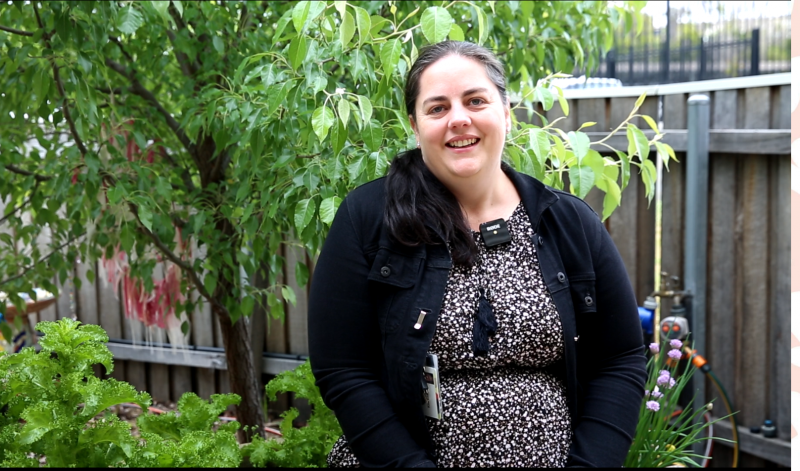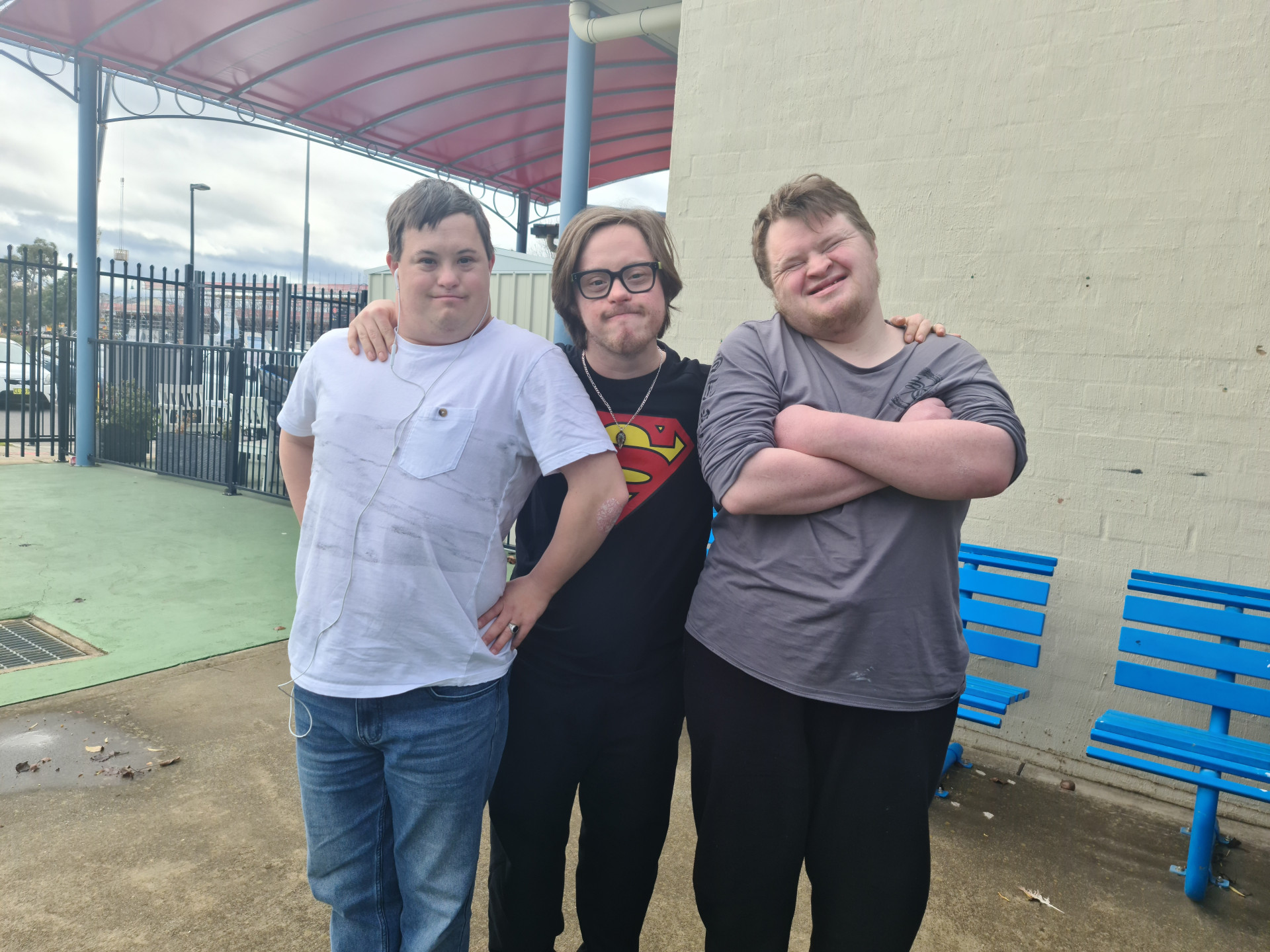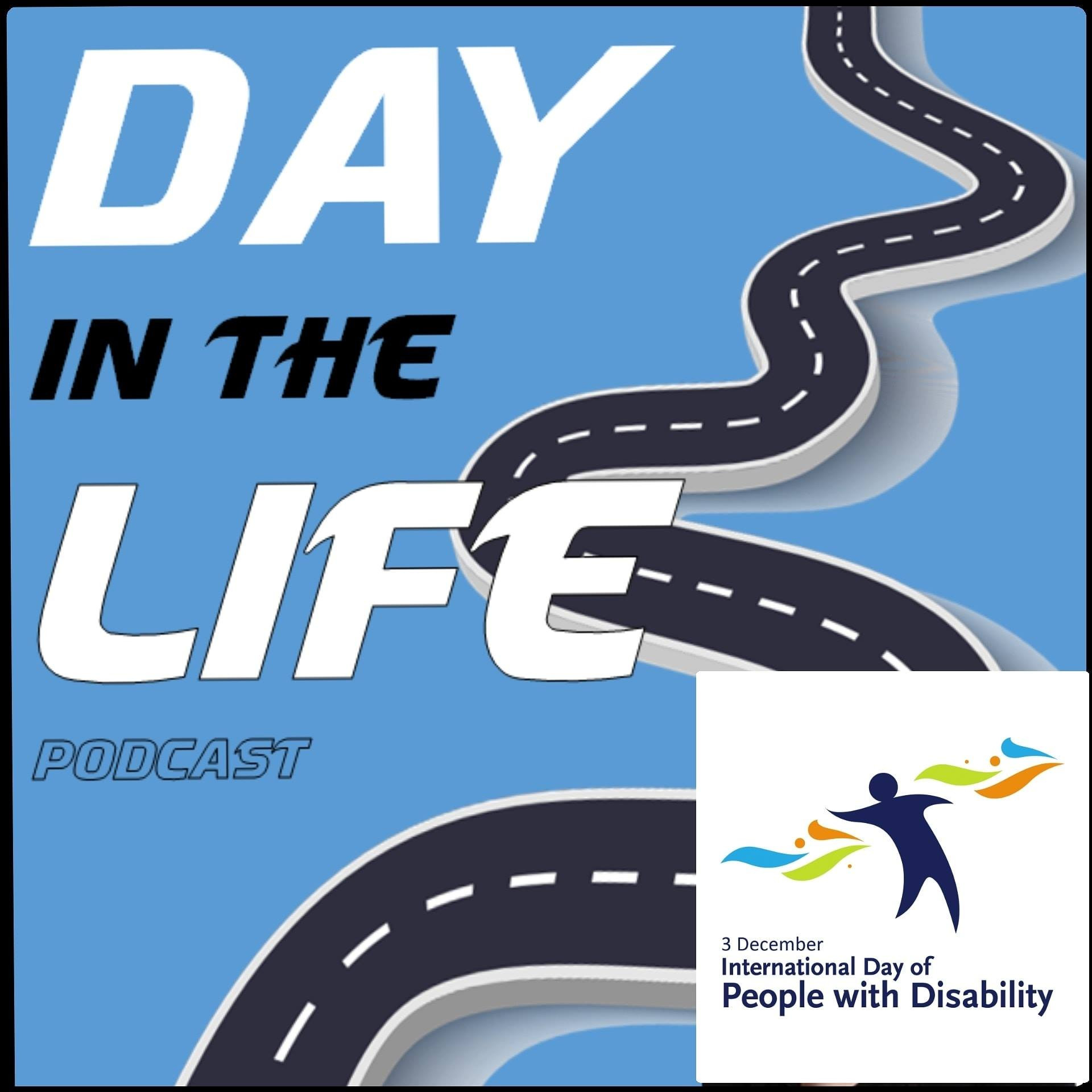Continuing from where we left off last time, Kim Eason, Manager of Communities@Work’s Disability Programs, shares greater insights into her journey and experiences of working in the disability sector.

After discussing her beginnings in the sector, the rewarding nature of working in disability support and life-skills building, and how she shaped the disability day programs at Communities@Work over the seven years she has been with us, she now sheds light on some of her more personal experiences.
She talks about moments she’s proud of, explains the inner workings of the disability programs, and discusses venturing into the world of podcasting, to bring to the spotlight the stories of people living with a disability and their carers and families.
What are some of the most memorable or significant moments that you’ve experienced working in our disability programs?
Kim: I have had some great moments. They sound like such little things which are big in the larger scheme of things, even though they may not seem huge to other people. But they are to the people that come to the program.
One of the most recent ones is we’ve got some young men who have been here, probably since they were teenagers. Even though they’ve been here the longest, they feel a little bit disjointed from the team, because they’re at a much higher capacity than some of their peers. They are out in the workforce, they volunteer, they are quite social and are moving towards that independence.
So, the question was how do we continue to help them because they still want to be here – they still have fun, but how do we help them still feel part of the group at the same time as promoting their independence? And one of the things that we have done is sat down with them and thought about the kinds of things they think they can contribute to our program.
And for them, it’s such a huge deal that they get to have a say. So, they’ve come up with some things that they can do to help not only the centre but also their peers. They want to learn while teaching other people that come to the program the things that they know.
For instance, they’ve learnt to catch the bus independently. Over the years, they’ve been able to help staff teach their peers how to do that. And so now, we’ve got probably 90% of our clients who love travelling on the bus because those two young men have taught them how to catch the bus.
We’re also getting them to help staff run workshops on how they felt when they went for a driving lesson, how they felt when they went to their first job interview, and to even teach others some basic numeracy and literacy, money skills, because they know how to do those things.
It makes me so proud to see people who come to our program to learn, are now the ones passing on their knowledge while being a part of the group. We help them use the skills that they have to contribute to the program and also help them build friendships and relationships that way. We also encourage them to contribute to the actual running of the program, for example, they might help with the grocery shopping for the day or help get everyone ready for the morning chat.
“It’s a good way of helping a person to be in charge of their program. It’s not just about asking them what we think is best, it’s about getting their contribution.”
Seeing such growth and experiences firsthand are my most memorable moments, because they are significant to the people who come to our disability programs.

Photo: Clients from our Communities@Work Disability Programs’
Now tell us a little bit about your podcast – how did it begin and what’s your vision for it?
Kim: Probably about 12 months ago, maybe more, I started having a think about the disability sector and how little there was about who people are and what their stories are. I would go to forums and hear some snippets of conversations about this happened to this person, or this has been a struggle. And I wanted to know those stories, one to help me in my work, but also, to just break down barriers. And so, I started thinking about getting these stories out there, which began taking the shape of an idea for a podcast.
“So many places that I’ve gone to have this stigma attached to disability and people with a disability are treated very differently to everyone else. I wanted our staff to be able to see, this is what it’s like, and this is how you could support the person, that this is where a person’s coming from in their life.”
For example, if a parent is maybe upset with a staff member, and the learning from ‘this story’ is potentially why – this could act as a resource for staff. And not just the staff, even the broader Canberra community. I wanted it to be a resource for businesses who are worried or scared to take on a person with a disability. And what it means to be inclusive in workplaces.
So many times, I’ve worked with clients in employment situations trying to find them work. And they have refused because they have thought it to be too risky or because they can’t afford the modifications or whatever it looks like, or because they feel it’s too hard. But there are so many people that have so many talents that they could contribute to a workplace. And so I wanted to use my podcast for that as well.
Additionally, I wanted a podcast that was for people with a disability themselves and other carers so that they could each see what other’s stories were like. And if there’s someone out there struggling with a particular situation, they might hear the podcast and realise they are not alone. So, I guess, in a way, to give hope to people as well.
Despite the varied reasons, what is the main focus of your podcast that brings all the stories together?

Photo: Cover of an upcoming episode for Kim’s Podcast
Kim: My idea was always to do those grassroots conversations, everyday people, not just the people that come with celebrity status. And so I created ‘Day In The Life’ podcast which is the main focus. We’re hoping that we can do alternating weeks of a topic, and then an interview.
We want to interview people with a disability, we want to interview their families, we want to look at businesses who employ people with disability, we want to look at all the areas that touch the lives of people with a disability.
This includes accommodation services, day programs, respite care, and all that kind of stuff so that people know what’s out there, and how it is in the disability sector these days. Some people think that we’re still back in the 1980s, or the year 2000. And we want to show people how progressive the sector can be while sharing the journeys of people in that process.
With 25 years working in Disability, there are some stories that I’ve heard along the way, and people that I’ve worked with that I can relate to a particular topic. And then it’s just taking the topics that people want to hear about, and want to know more about to either interact better with a person with a disability or even just know what a particular disability is all about. It can be anything and everything relevant to the sector, and the people living with a disability, and I am excited to continue on this podcasting journey.
And coming back to the Communities@Work Disability Programs, what do people have to do to sign up for the programs?
Kim: Anyone can sign up, whether they are referred, or whether they just give us a call themselves. We have a lot of clients who approach us for their child, and more recently, we have had many clients calling up themselves and asking us what the programs are about.
Either way, our approach is to have a conversation with them to make sure that our programs are a good fit for what they’re looking for. Once they’re registered, we have a look at funding and explore how we can support them to do what they need to do. People can book to come and visit the site as well, see what it’s like, see the people that come to our program, and what the activities might look like. We also like to know as much about them as know about us in the beginning as it makes it easier to support them that way.
When people sign up for the disability programs, what can they expect?
Kim: For one, they can be assured that they will always be heard. We consider all constructive feedback and use it to learn and grow. It gives us something to reach for. Then, the expectations depend from program to program.
For instance, we have two young adults programs and an adults program. The people in these programs are all 18+ and they come to us to learn whole of life skills, to spend time with friends, and to engage in activities. On the other hand, we have our teens program, catering to 12 to 18 year old. While they’re still in high school, they come to us after school, so that their parents can work full time, or spend time with other siblings that may not get the same kind of focus that you would for a person with a disability.
And then in school holidays, people also come to us for a holiday program where we have teens holiday program. When school is not on, they need something to do and there we focus on social and recreational skills, but with life skills woven into that. We try and make it as fun and as interactive as possible, and they’re learning at the same time as they’re having fun, so it doesn’t feel like school.
And then we have our Malkara holiday program, which is for children aged 5 to 12. With children, they can expect a lot of social and recreational skills, and physical development too, as fine and gross motor skills is what we do a lot of at Malkara School, with hands-on-play that also helps them to learn.
Most importantly, in a nutshell, I would say all of our disability programs are more than just providing care. People who attend our programs can expect to learn, grow and have fun when they sign up – they can expect support and someone who will listen to them and who is passionate about bringing their stories to the forefront.
Kim Eason is the Disability Programs Manager at Communities@Work. She also runs her very own podcast – A Day in the Life – which can be accessed here.
For details on Communities@Work’s Seniors and Disability Services, visit this page.
